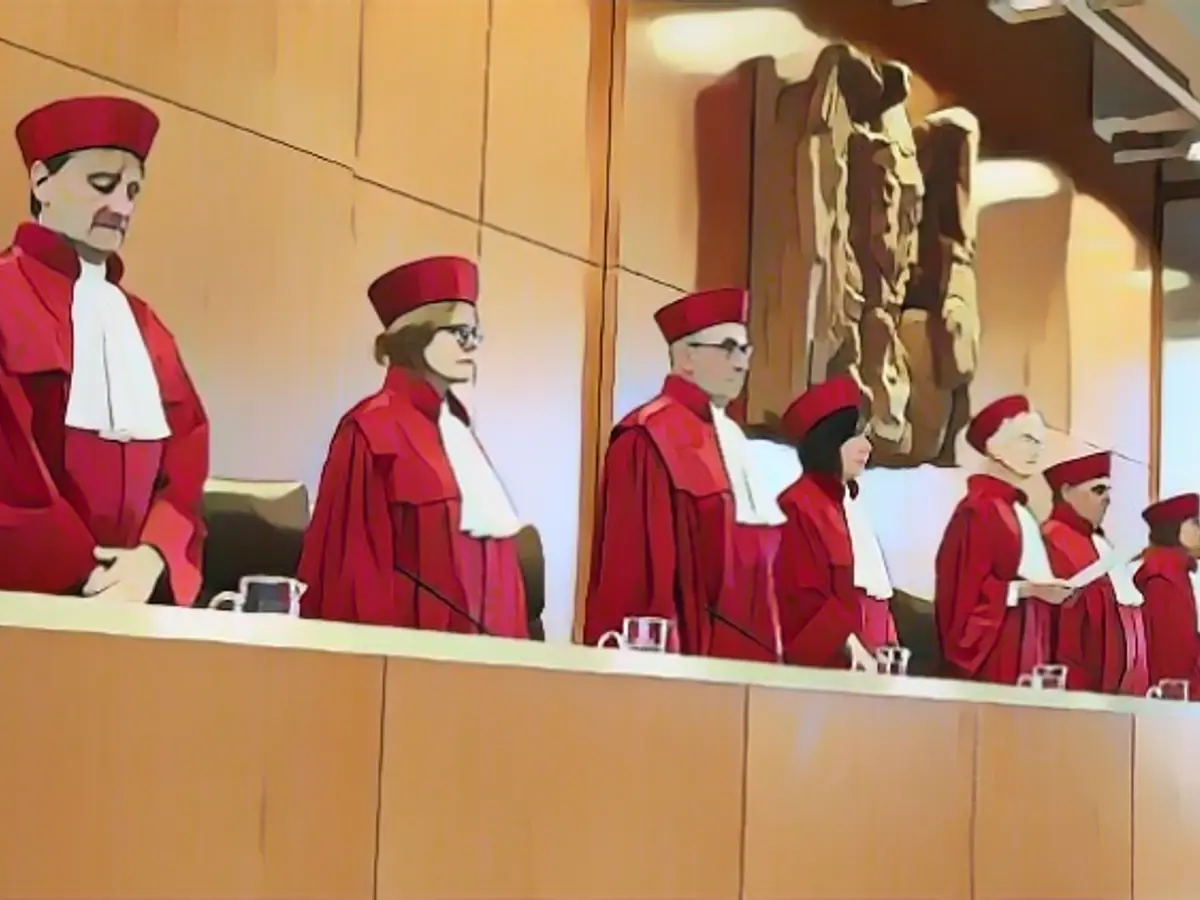Economists anticipate climate policy cuts
Due to coronavirus, the German government is increasing the 2021 budget by 60 billion euros. However, the Constitutional Court has now ruled that it may not transfer unused funds to the climate fund. According to economists, the ruling will have far-reaching consequences.
According to IFO President Clemens Fuest, the ruling of the Federal Constitutional Court on the 2021 supplementary budget will have far-reaching consequences for fiscal policy in Germany. "For the federal budgets of the coming years, there will be considerable restrictions in terms of spending on government support for decarbonization," said Fuest. One option would be to declare an emergency situation again for 2023 or 2024, not comply with the debt brake requirements for normal times and increase new borrowing. "However, whether this would be compatible with the Basic Law is questionable after this ruling," said Fuest.
The emergency situation would have to be presented as a consequence of the Russian attack on Ukraine, but this attack took place more than a year and a half ago, explained the top economist. "Alternatively, the German government only has the option of cutting and reallocating spending or raising taxes." However, the FDP at least has ruled out tax increases in this legislative period. "Beyond the current consequences for the federal budget, the ruling signals that fiscal policy maneuvers to circumvent the debt brake will be critically observed and severely restricted by the Federal Constitutional Court," added Fuest.
DIW President: "Debt brake is no longer up to date"
DIW President Marcel Fratzscher sees the ruling as an impetus to reform the debt brake. "The attempts by federal governments over the past twelve years to circumvent the debt brake have become increasingly absurd," said Fratzscher. "The debt brake is no longer in keeping with the times, because it deprives politicians of the leeway they need to combat crises and invest in the future." It is now more urgent than ever for the German government to launch an investment offensive for future investments - in education, climate protection, innovation and infrastructure.
Economist Jens Südekum sees difficult times ahead for the traffic light coalition. "This presents the federal government with the biggest economic policy problem of this legislative period," said the professor of international economics at the Institute for Competition Economics at Heinrich Heine University in Düsseldorf. The 60 billion euros have been fully planned for the coming years, for support measures in the area of building renovation and heating replacement, for reductions in electricity prices and for subsidies. "All of this is now up for discussion."
In the short term, the federal government could fall back on other reserves that are still in the Climate and Transformation Fund (KTF). "But this is only an emergency operation and won't last long." The reserve will be used up by next year at the latest and "the fundamental question arises as to how the Federal Government intends to finance its planned climate policy then", said Südekum.
This is a mammoth task and there is no simple solution in sight. However, massive cuts in climate policy should not be made now. "That would be a slap in the face for future generations and the entire business location, which has set out on the path towards transformation and has also placed its trust in the KTF." The Federal Constitutional Court overturned the controversial supplementary budget of the traffic light government at the end of 2021 as unconstitutional in its ruling. It ruled that 60 billion euros in loans that were not needed to tackle the coronavirus crisis could not be reallocated and shifted to the climate fund. The action of the traffic light system was null and void, in particular due to a violation of the debt brake.
- The Federal Constitutional Court in Karlsruhe has declared the 60 billion euros transfer to the climate fund from the budget surplus unconstitutional, challenging the budget policy of the Federal Government.
- Reactions from the political sphere following the ruling include concerns from economists about the implications for future climate policy, as well as calls for reform of the debt brake by the DIW President.
- The ruling by the Federal Constitutional Court has placed focus on the Justice system and its role in scrutinizing the budget policy decisions of the Federal Government, with potential reactions and statements from the Federal Government and the FDP in Berlin.
- TheTraffic Light Coalition's climate policy, which relies on the 60 billion euros from the budget surplus, is now under threat due to the judgments of the Federal Constitutional Court, potentially leading to revisions or adjustments in the Coalition's budget policy.
Source: www.ntv.de








